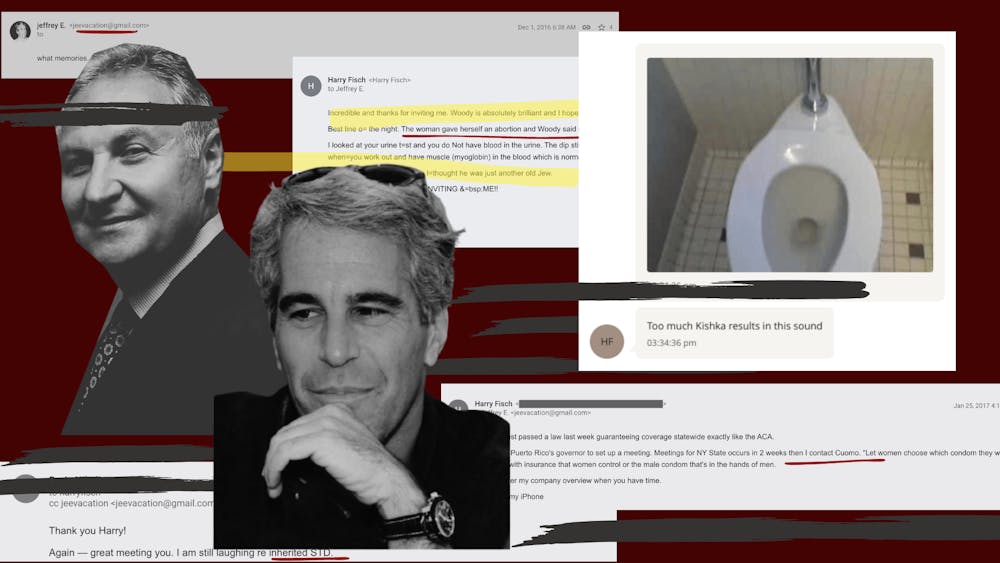In the looming shadows of a midterm season preceded by protest and partisanship, Cornell’s Rare and Manuscript Library is shining a light on the history of female voter access and participation in an online exhibit entitled “Woman Suffrage at Cornell.”
With top voter issues in mind, including many surrounding women’s rights, The Sun sat down with Elaine Engst M.A. ’72, former Cornell University Archivist and co-curator of the exhibit, to discuss the concept and implications of releasing the virtual exhibit on Election Day.
“It is important to remember that the 1915 election had a women’s suffrage amendment on the ballot that was voted down. [Their eventual victory] shows how not to be so discouraged by that defeat and to go on and two years later actually be able to succeed.”
“We can’t be so discouraged by 2016 that we don’t continue to really struggle and fight,” Engst continued about the present implications of the exhibit.
“Woman Suffrage at Cornell” seeks to outline the lineages of present-day women voters by exploring the discourse around suffrage at Cornell and in Tompkins County in the late 19th and early 20th centuries.
Referring to the female Cornell students at the time, Engst stated that “you look back and you see the first poll on this. Of the nine women polled, only six of them were actually in favor.”
Engst, who was the University archivist for 20 years and worked in the library for nearly 40 years prior to retiring last year, said that the idea for a physical exhibit came about during last year’s centennial of the passage of the New York State Constitution amendment that gave women the right to vote.
The online exhibit, which was put together recently to supplement the physical exhibit, currently contains much more material than the original physical display, which consisted of about six cases. Despite the extensiveness of the existing content, Engst said finding sources documenting such a historic time period was not as easy as one might assume.
“The suffrage exhibit was so interesting to me because I’m used to having too many sources — there are boxes and boxes and boxes of many thousands of them. Sources for this are tough,” Engst said. “You would think this was something documented, but it’s not. We don’t have a single record of a student suffrage group.”
Much of the online exhibit’s “Student Voices” section is pieced together from personal letters women sent home rather than from formal records of campus discourse.
Engst went on to discuss the difficulty young women at Cornell faced when grappling with the suffrage movement. Despite what Engst acknowledged as Cornell’s “great history of coeducation,” she points out that there was still a lot of “anti-coedism” in the 19th century.
“[The women of Cornell were] a little reluctant to be politically active. They were kind of protecting themselves,” she said. “There [were] very few of them, and they [didn’t] always feel that they’re being accepted.”“[The women of Cornell were] a little reluctant to be politically active. They were kind of protecting themselves,”
As more active suffrage groups cropped up in Ithaca and Tompkins County in the 20th century, people began to feel more strongly about the movement. Ultimately, once women were granted voting rights, the women of Tompkins County felt that “voting was a right, a privilege, and a responsibility,” Engst said.
“The first election when [women] were voting in state and national offices was in November of 1918 — 100 years ago. Women could register for political parties. Locally, a woman ran for office,” she continued.
Fast forward to recent elections, and voter turnout has been historically low. However, in the days leading up to last week’s midterms, the Cornell campus became newly alive with flyers, conversations, and social media posts encouraging others to vote.
The Ithaca Journal reported extremely high voter turnout in Tompkins County for the midterms. Nationally, it was the largest group of female legislators ever as 125 women were elected to serve in the House and Senate.
“I think our suffrage foremothers would be thrilled,” Engst said. “They felt that women needed to be politically active, and I think we’re seeing that.”
“Women, young people, and minorities need to vote,” Engst continued. “Not voting is voting. People can’t be cynical about the political process, because being cynical is just leaving [voting] to the people who are not of good will.”











